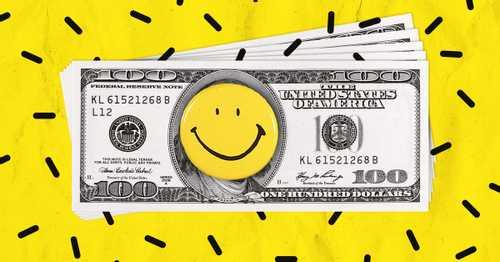Money can actually buy you happiness. Here's how to get it.
Curated from: vox.com
Ideas, facts & insights covering these topics:
5 ideas
·3.2K reads
9
Explore the World's Best Ideas
Join today and uncover 100+ curated journeys from 50+ topics. Unlock access to our mobile app with extensive features.
Increasing your well-being
A growing body of research shows we can reliably raise our well-being.
Reframing the way we think about money and making financial decisions can lead to long-term gains in life satisfaction. Just having money doesn’t necessarily mean greater happiness, but using it well can.
257
744 reads
Two categories of happiness
- The level of positive emotions. This includes pride, joy, contentment, and curiosity we experience on a day-to-day basis. How happy you are on an immediate basis fluctuates by the day or even the hour.
- The overarching sense of contentment. How happy you are overall, generally remains the same. When you rate your happiness on a 10-point scale, if you are a seven kind of person, you will often stay around seven.
201
515 reads
Buy time
Buying time by outsourcing unpleasant or disliked tasks can benefit our well-being.
Unfortunately, we're not great at valuing time over money. To change our spending habits, it helps to value time more than money. It could mean that we seek a job for its flexibility rather than the salary and prestige.
228
554 reads
Spend money on experiences
Psychologically, the effect of buying stuff is less valuable. Experiences are often better investments, as they encourage meaningful memories and connections that have a lasting impact.
304
713 reads
Give money away
A series of experiments found people are happier after spending money on others versus on themselves. It is not that spending money on yourself doesn't feel good - it just doesn't seem to last for long.
By giving money away, you not only make other people happy, but you also make yourself happier.
239
682 reads
IDEAS CURATED BY
"There's no money in poetry, but then there's no poetry in money, either." ~ Robert Graves
Angela 's ideas are part of this journey:
Learn more about moneyandinvestments with this collection
The importance of physical activity
The role of genetics in lifespan
How to maintain a healthy diet
Related collections
Similar ideas
Read & Learn
20x Faster
without
deepstash
with
deepstash
with
deepstash
Personalized microlearning
—
100+ Learning Journeys
—
Access to 200,000+ ideas
—
Access to the mobile app
—
Unlimited idea saving
—
—
Unlimited history
—
—
Unlimited listening to ideas
—
—
Downloading & offline access
—
—
Supercharge your mind with one idea per day
Enter your email and spend 1 minute every day to learn something new.
I agree to receive email updates

